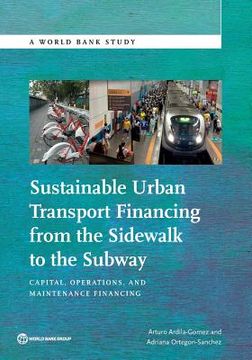Sustainable Urban Transport Financing from the Sidewalk to the Subway: Capital, Operations, and Maintenance Financing (in English)
Synopsis "Sustainable Urban Transport Financing from the Sidewalk to the Subway: Capital, Operations, and Maintenance Financing (in English)"
"Urban transport systems are essential for economic development and improving citizens' quality of life. To establish high-quality and affordable transport systems, cities must ensure their financial sustainability to fund new investments in infrastructure while also funding maintenance and operation of existing facilities and services. However, many cities in developing countries are stuck in an ""underfunding trap"" for urban transport, in which large up-front investments are needed for new transport infrastructure that will improve the still small-scale, and perhaps, poor-quality systems, but revenue is insufficient to cover maintenance and operation expenses, let alone new investment projects. The urban transport financing gap in these cities is further widened by the implicit subsidies for the use of private cars, which represent a minority of trips but contribute huge costs in terms of congestion, sprawl, accidents, and pollution. Using an analytical framework based on the concept of ""Who Benefits Pays,"" 24 types of financing instruments are assessed in terms of their social, economic and environmental impacts and their ability to fund urban transport capital investments, operational expenses, and maintenance. Urban transport financing needs to be based on an appropriate mix of complementary financing instruments. In particular for capital investments, a combination of grants +"from multiple levels of government+" and loans together with investments through public private partnerships could finance large projects that benefit society. Moreover, the property tax emerges as a key financing instrument for capital, operation, and maintenance expenses. By choosing the most appropriate mix of financing instruments and focusing on wise investments, cities can design comprehensive financing for all types of urban transport projects, using multi-level innovative revenue sources that promote efficient pricing schemes, increase overall revenue, strengthen sustainable transport, and cover capital investments, operation, and maintenance for all parts of a public transport system, ""from the sidewalk to the subway."""

